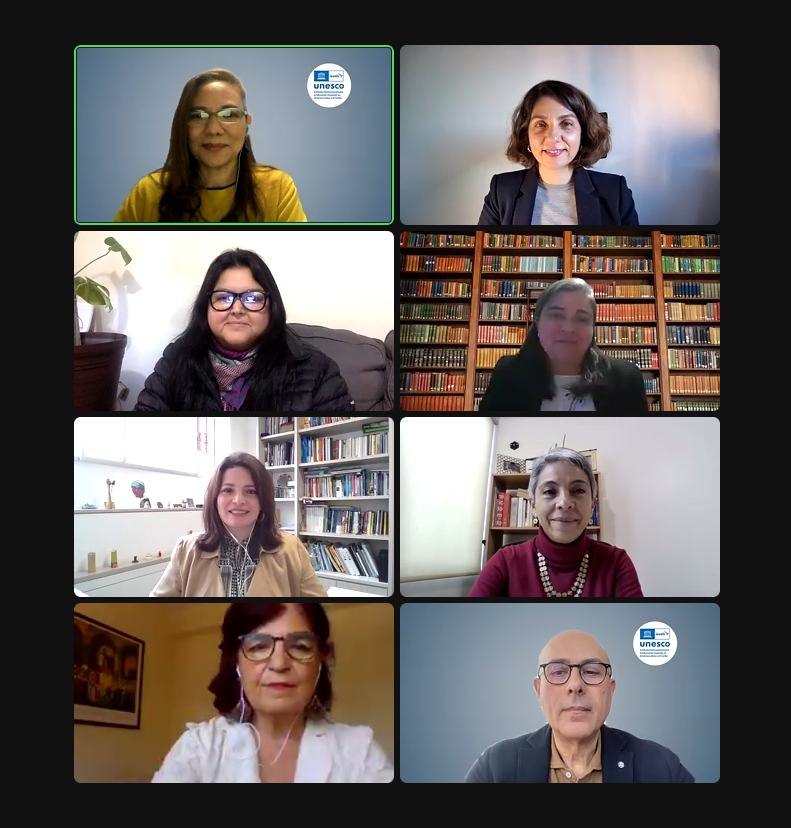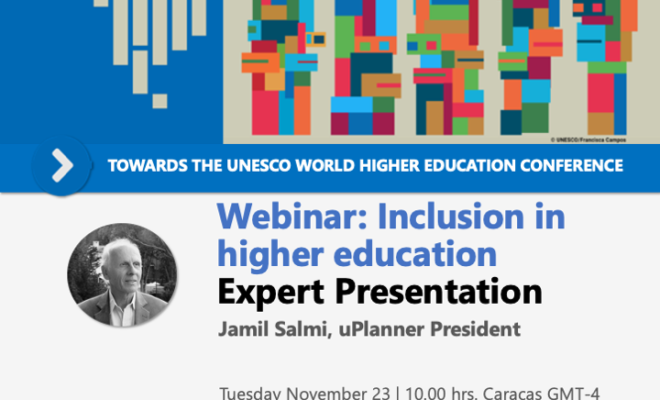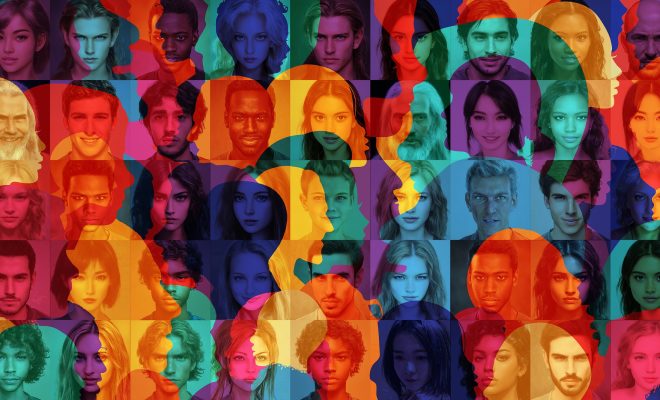Cycle Challenges of Inclusion in Higher Education: Webinar 2 “Pedagogical dimension of inclusion”
Some ideas from the speakers
–Venue of the theme about inclusion… Leaving no one behind, Francesc Pedró, Director of UNESCO IESALC.
For UNESCO, inclusion is one of the 10 major themes of the World Conference on Higher Education, to be held in Barcelona (Spain) in May 2022. It is necessary to make the concept of inclusion more complex, not only in terms of access, but also to guarantee the clearest indicator of equity: educational success.
–Conceptual Framework of Inclusion in Higher Education, Carmen Márquez Vázquez. Autonomous University of Madrid, Spain.
The institutional model of learning has been hierarchical, with its core in the teacher who homogeneously transmits knowledge to the students. Now a student-centered approach is proposed, where both learners learn at the same time.
–The pedagogical dimension of inclusion, Marisol Silva Laya, Director of Research. Universidad Iberoamericana, Mexico.
Equity to achieve social inclusion: resources and processes must be articulated in inclusive university spaces to offer relevant education to those who have traditionally been excluded so that they can participate and expand their capabilities.
–Postgraduate teacher training, Cynthia Duk Homad, Director of the Center for Development and Innovation in Inclusive Education. Universidad Central de Chile, Chile.
Teacher training is key to move towards greater inclusion. Teachers are required with competencies to work in increasingly complex and diverse contexts. This requires changes in conceptions, attitudes and teaching practices.
–Inclusive hybrid training, Luz Osorio, director of Conecta-TE. Center for Innovation in Technology and Education. Universidad de los Andes, Colombia.
Inclusive learning environments recognize diversity as an empowering element, while hybrid environments expand possibilities in time and space, giving continuity to the learning process.
–Curricular training in inclusion. Julieta Yadira Islas Limón, Director of the School of Medicine and Psychology. Autonomous University of Baja California, Mexico.
We have programs that seek equity through inclusion strategies in 3 axes: curricular adaptation, attention and socio-emotional follow-up (mental health and prevention of gender violence) and human resources training.
–University Inclusion Experience (undergraduate level). Araida Hidalgo-Bastida. Manchester Metropolitan University, United Kingdom.
Students are unique individuals, with different profiles by race, nationality, religion, gender, disability, sexual identity, age. Only 30% of those from technical schools, who must transfer and are considered minorities, obtain high grades.

Presentations (only available in Spanish)
La dimensión pedagógica de la inclusión Dra. Marisol Silva Laya, directora de la División de Investigación y Posgrado de la Universidad Iberoamericana, México
Formación de posgrado del profesorado . Dra. Cynthia Duk Homad, directora del Centro de Desarrollo e Innovación en Educación Inclusiva de la Universidad Central de Chile, Chile
Formación híbrida inclusiva, Doctora Luz Osorio, directora de Conecta-TE- Centro de Innovación en Tecnología y Educación de la Universidad de los Andes, Colombia
Experiencia de Inclusión Universitaria, doctora Araida Hidalgo-Bastida. Manchester Metropolitan University, Reino Unido
RELATED ITEMS








